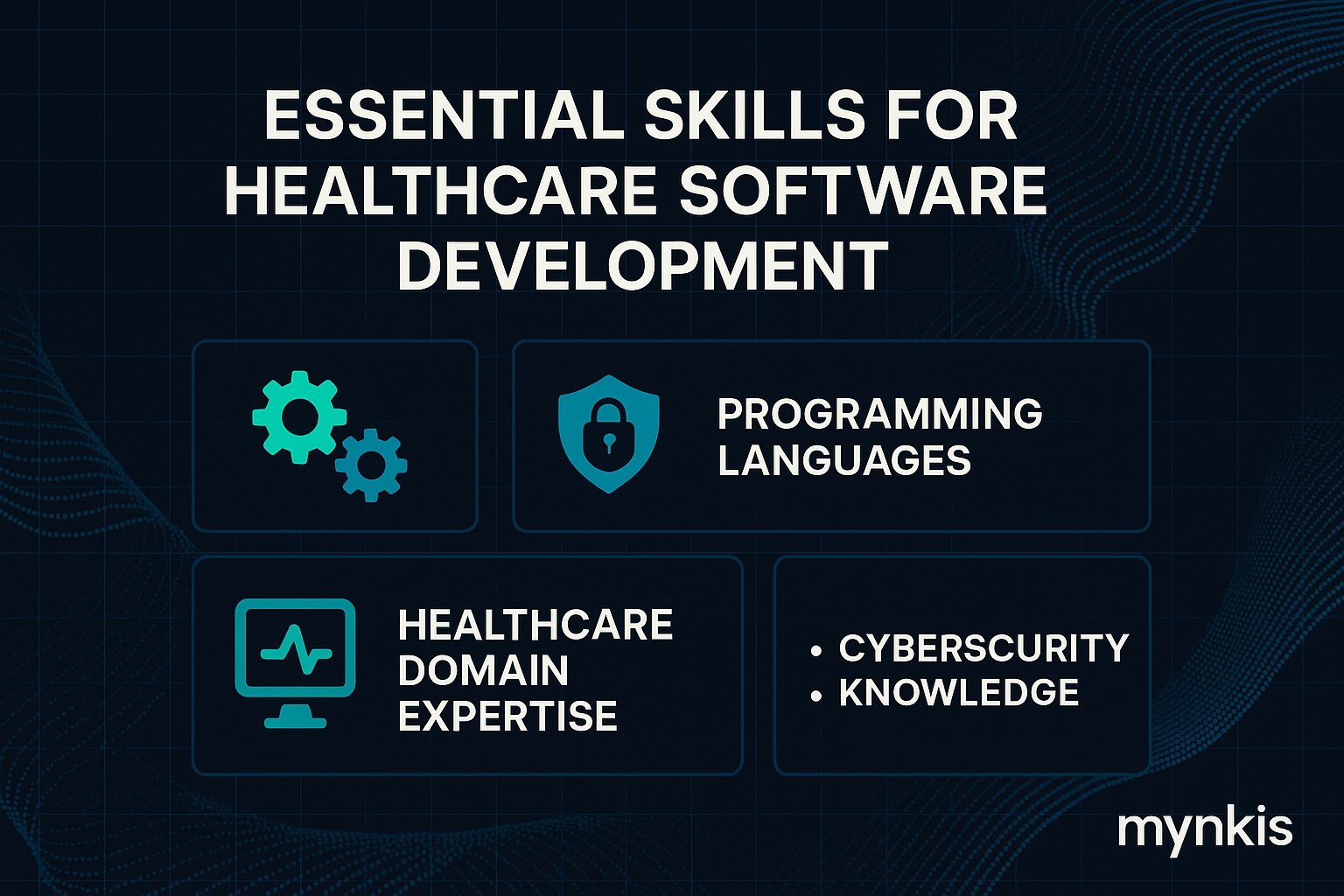Schedule a Demo
Healthcare software, encompassing everything from patient portals to comprehensive data management systems, requires a unique blend of skills. These systems aren't just about connecting doctors and patients or managing appointments; they're deeply entwined with regulatory compliance and security measures. As a developer in this field, the stakes are higher than ever. Crafting software that not only performs efficiently but also upholds patient privacy and adheres to healthcare regulations is non-negotiable. In my time consulting operations managers at clinics, I've realized just how critical these skills are. You need to be half-programmer, half-regulation expert.
Knowledge of HIPAA, HITECH, and other healthcare regulations is absolutely fundamental for any developer working on medical software solutions. These laws dictate how patient information can be stored and transmitted. Having a foundational understanding isn't enough, though; you must deeply engage with these regulations, interpreting them for real-world applications. In workshops with compliance officers, I've learned that effective developers stay updated on the latest changes to the laws, ensuring their software never just meets but exceeds compliance expectations.
Security isn't just a feature—it's the bedrock of trust in healthcare software. From implementing end-to-end encryption to routinely scanning for vulnerabilities, developers need to be astute in the nuances of security. According to a recent report from HealthIT.gov, healthcare institutions experience cybersecurity incidents at an alarmingly high rate. Yet, with skilled developers applying security best practices, many of these threats can be neutralized. It's about building walls, yes, but also nurturing a culture of security awareness within your development teams.
The complexity of today's healthcare ecosystem means that software must be interoperable, seamlessly integrating with diverse platforms and systems. My experience has shown that unless a solution facilitates data exchange across different healthcare networks, it fails to deliver on one of its core promises. This is where skills in APIs, data standardization, and health information exchange protocols become invaluable. Mastering these areas can dramatically enhance a software solution's utility and adoption rate.
Developing software for healthcare isn't about flaunting the latest programming techniques. It's about empathizing with patients and doctors, understanding their workflows, and designing solutions that genuinely improve their lives. In focus groups with nurses and physicians, I've gathered insightful feedback on the usability of various platforms. These sessions have reinforced the importance of user-centric design in healthcare software. A sleek, easy-to-navigate patient portal can significantly reduce frustrations and increase both satisfaction and compliance rates.
Staying abreast of technological advancements like machine learning for diagnostics or blockchain for secure record keeping is a must for any developer serious about their craft. Leaders at the American Health Information Management Association emphasize that forward-thinking development in healthcare not only keeps solutions relevant but can also provide groundbreaking enhancements in patient care. My peers and I are constantly exploring ways to integrate these innovations thoughtfully and safely into our development roadmaps.
In my career, I've found that effective communication and collaboration with healthcare providers, from doctors to administrative staff, is indispensable. Regular engagements and feedback sessions ensure that the software solutions align with the real needs of the sector. This multidisciplinary approach isn't just beneficial—it's critical for creating software that actually works for both practitioners and their patients.
Proficiency in certain programming languages and tools remains crucial for developers. Languages like Java, Python, and C# are staples due to their robust performance in enterprise-level custom software development. Additionally, familiarizing oneself with healthcare-specific frameworks, like the FHIR standard for electronic health record exchange, can greatly amplify a developer's ability to produce compliant and interoperable solutions.
Healthcare software development projects often face stringent timelines and budget constraints. Hence, skills in project management and an agile mindset are vital. In my work with agile teams, I've observed that delivering software iteratively—through short development cycles with continuous feedback—greatly enhances project outcomes. This approach enables developers to adapt swiftly to changing requirements, which is particularly important in the fast-evolving healthcare sector.
Creating detailed and accurate documentation throughout the development process is not optional but necessary, especially in healthcare where every facet can have regulatory implications. Systems I've helped develop at various clinics incorporate meticulous traceability, ensuring that every feature is linked back to specific regulatory requirements. It’s tedious work, but critical for ensuring the software remains compliant and reliable over its lifecycle.
Ethics is an underpinning yet frequently underemphasized aspect of developing software for the healthcare industry. The decisions we make as developers—from what data to track to how user actions are designed—carry heavy implications. I’ve advocated for ethical reviews at different stages of the development process. This practice has helped us ensure our solutions are not only technically sound but also morally responsible.
The landscape of healthcare enterprise web solutions is never static. Therefore, the skill to continuously learn and adapt is paramount. Clinics and hospitals I’ve worked with expect their solutions to keep pace with medical advancements and policy shifts. A personal commitment to lifelong learning—not only in programming but across the broader spectrum of healthcare trends—enables a developer to deliver truly progressive solutions.
Lastly, never forget the human element. In healthcare software development, we serve people, not machines. Experiences I’ve had leading diverse developer teams have taught me the importance of empathy and understanding the needs of those using our software—patients and clinicians alike. It’s about crafting solutions that ease their workloads, safeguard their data, and ultimately, enhance patient care.
